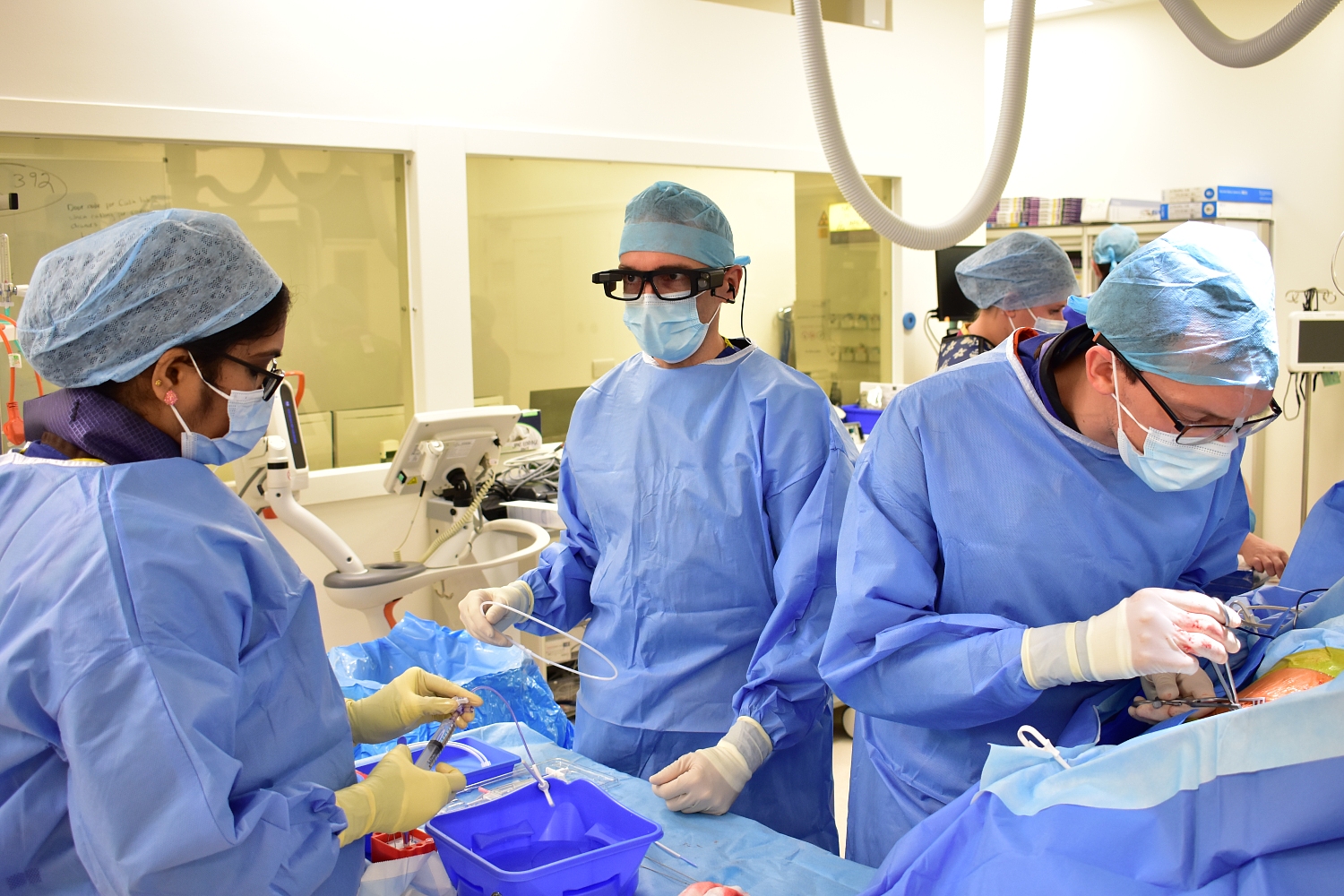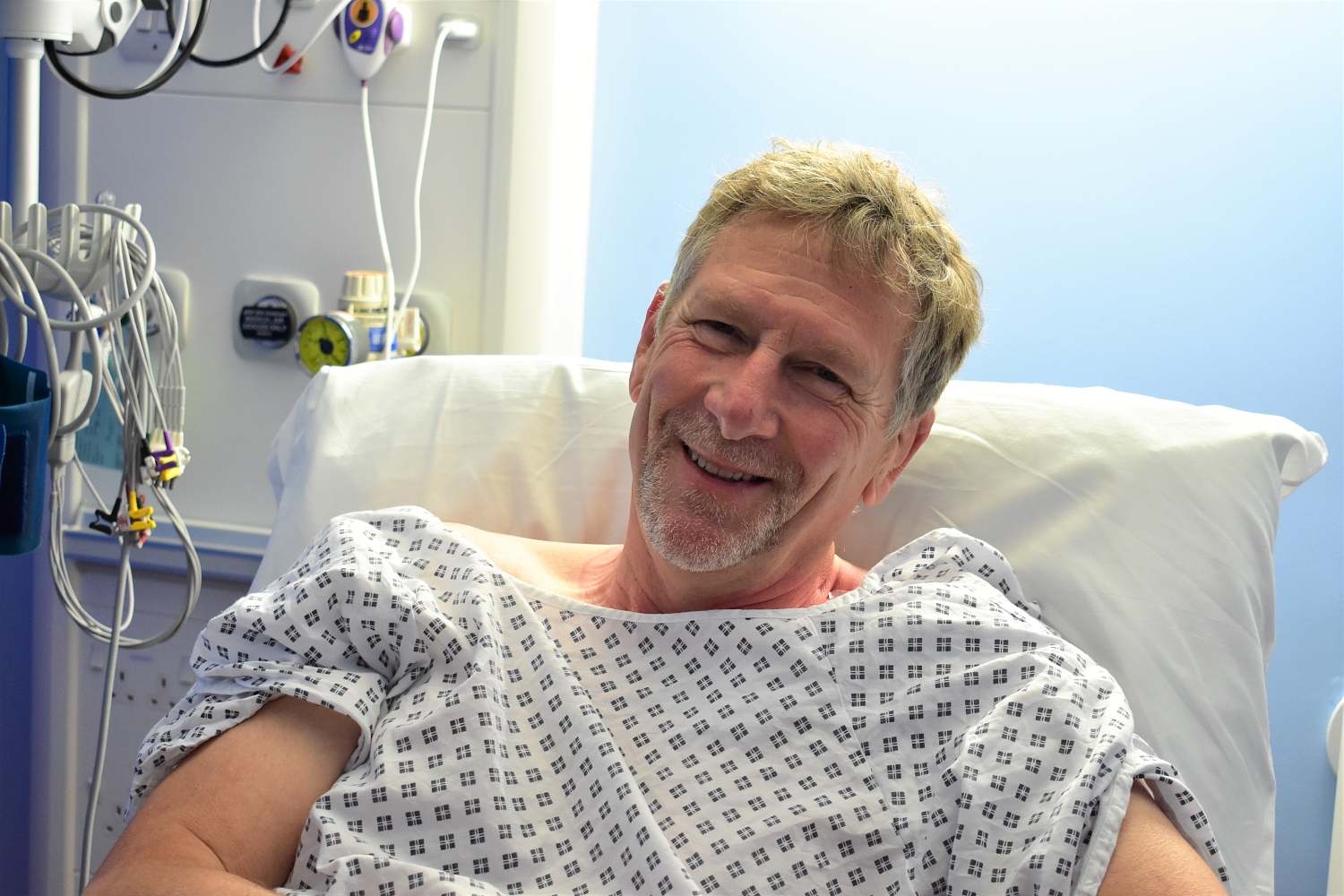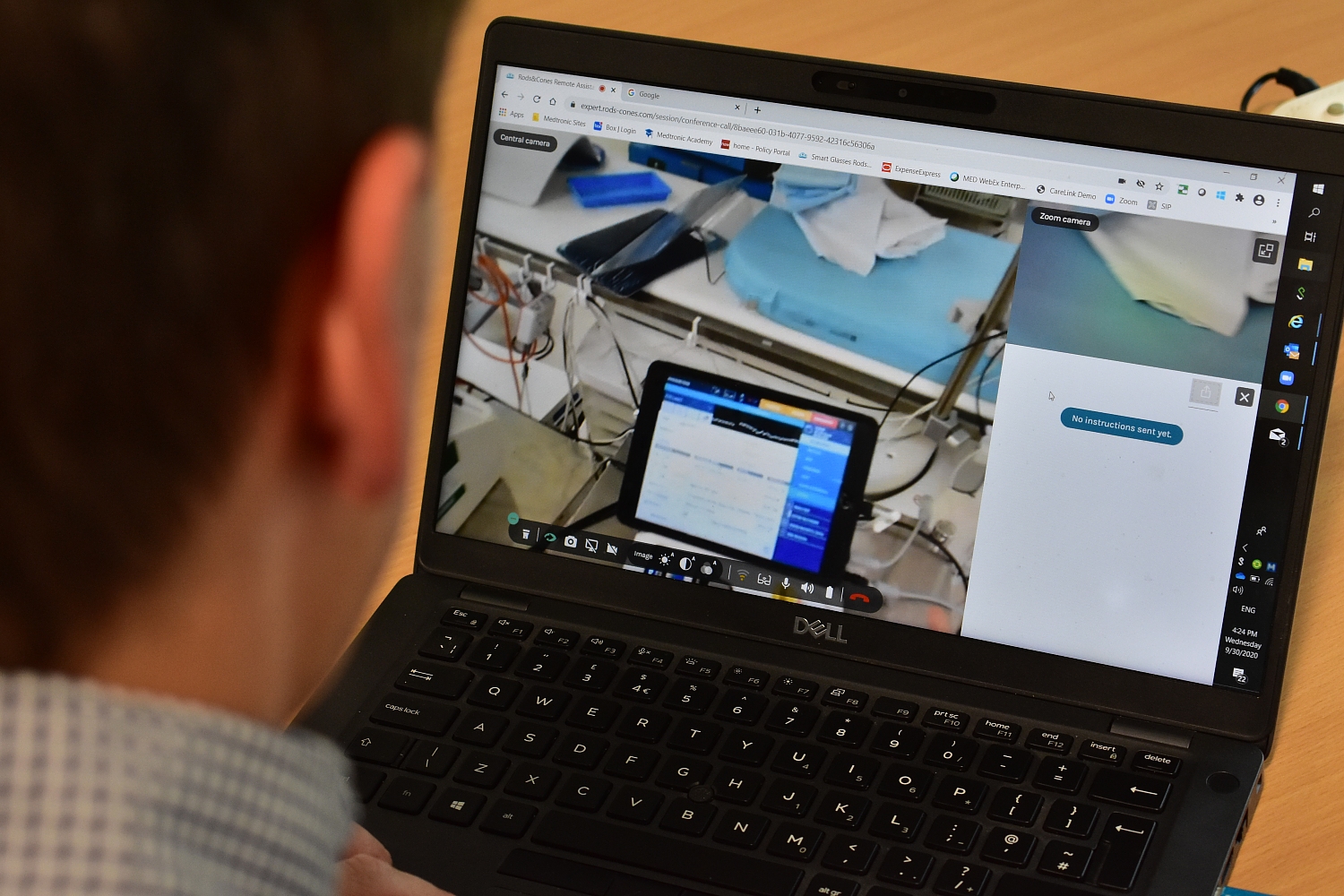A cardiology team at Royal Papworth Hospital NHS Foundation Trust in Cambridge has performed the first medical procedure in the UK using smart glasses, providing virtual support in the catheter laboratories and operating theatres for complex surgical implants.
The smart glasses are equipped with multiple cameras, a torch and earpiece, and share live video, audio and still photos which can then be viewed in real-time and annotated remotely via a laptop. It means doctors and their teams can collaborate with experts anywhere in the world, including product technicians, and access highly specialist and technical support that otherwise may have been unavailable during the COVID-19 pandemic.
The Surgery Assistance smart glasses, developed by Amsterdam-based company Rods&Cones, were used during the implant of the Medtronic Cobalt XT CRTD system, a state-of-the-art device used for treating heart failure.
The procedure involved implanting a cardiac resynchronisation therapy (CRT) device which is implanted in the chest and connected to the heart via leads. The device uses complex algorithms to identify irregular heartbeats (arrhythmias) and respond with impulses that correct the heart’s electrical signals and reduce the patient’s symptoms of heart failure. The procedure took around two and a half hours.

The glasses were used by a team in cath labs, led by Dr Patrick Heck
Speaking from a recovery ward in Royal Papworth Hospital following the procedure, the patient, 65-year-old John Constable from Lincolnshire, said: “I’ve been very well looked after today and very impressed with the professionalism across the hospital. I’ve felt completely safe at all times and would encourage anyone else needing to come to hospital to not delay their treatment.”
Commenting on the introduction of the new technology, Alaina Yardley, Lead Cardiac Physiologist at Royal Papworth Hospital NHS Foundation Trust, said: “The medical technology we use to treat heart failure and arrythmias is increasingly sophisticated, using complex algorithms that need specialist programming to match the patient’s symptoms. Traditionally we would have to wait for a technical expert to attend procedures, but COVID-19 has forced us to find new ways to perform procedures and reduce the number of people in catheter labs.”
Consultant Cardiologist, Dr Patrick Heck, commented: “We are trialling this in our cardiac units, specifically for the implant of the Medtronic cardiac devices where we need technical support to programme the device to match the needs of the patient. However, we see this as just the start and there could be many other opportunities for use of the smart glasses, from dialling-in other doctors around the world to support on complex cases to training the next generation of cardiologists.”

The procedure corrected John's heart’s electrical signals to reduce his symptoms of heart failure.
Eilish Midlane, Chief Operating Officer at Royal Papworth, added: “This is a fantastic innovation which supports teaching, training and remote engineering. In the context of a global pandemic, we are working hard to keep patients, staff and visitors to our hospital safe at all times and technology like this reduces footfall through the hospital and reduces the number of people in our catheter labs during procedures. It couldn’t have come at a better time.”
Previously used in precision manufacturing, such as the aeronautical industry, the glasses have been adapted for safe use in hospitals with handsfree technology (to prevent contamination) and revisions to the camera technology to accommodate for the specific lighting and conditions found in a cath lab or operating room.
Use of the technology in the hospital was made possible thanks to the support of the Trust's digital team who facilitated the set-up.
Bruno Dheedene, Rods&Cones co-founder, CEO, and veteran medical devices specialist says: “We are thrilled to make this significant step with Medtronic to make remote clinical support an option for UK doctors. Perhaps most importantly, we’re delighted we can help healthcare professionals continue their work despite the current COVID-19 restrictions, so that more lives can be saved.”

The smart glasses share live video, audio and still photos which can then be viewed in real-time via a laptop.
Jackie Fielding, Vice President of Medtronic UK & Ireland, said: “Due to COVID-19, like so many organisations, we needed to find a new way of working so that our clinical product experts could continue to provide doctors with technical support, without having to be physically in the catheter lab or operating theatres.
“Partnering with Rods&Cones and using the Surgery Assistance smart glasses we are able to provide the very best technical support to the doctors implanting our devices, while avoiding potential delays associated with needing a technical expert physically at the hospital. This could be the new normal in many cases, and we’re excited about exploring other possibilities with the technology.”
